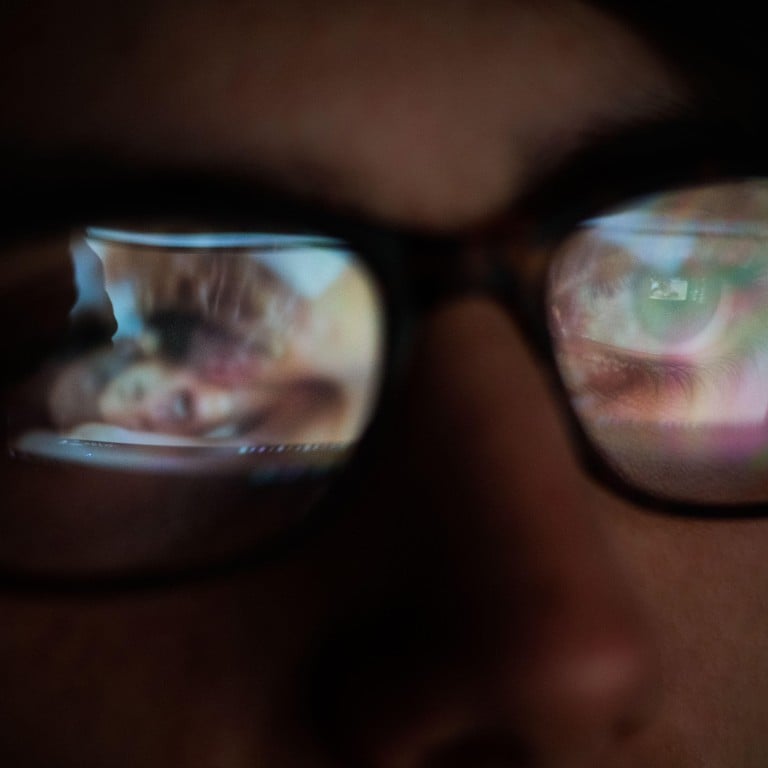
China’s deepfake celebrity porn culture stirs debate about artificial intelligence use
- Newspaper’s investigation into how web forums and e-commerce platforms let users superimpose other people’s pictures on pornographic videos raises ethical questions about how the technology is used
- Some sellers offer to superimpose female celebrities’ faces onto pornographic film actresses for less than US$1
The widespread use of artificial intelligence to create deepfake celebrity porn videos for Chinese internet users has raised fresh questions about the use and abuse of the technology.
While China’s strict internet controls should, in theory, prevent people from accessing pornographic content, an investigation by The Beijing News published on Thursday uncovered numerous platforms where people were selling services that offered to swap the faces of celebrities, or members of the public, onto images of porn stars for less than US$1.
The use of face-swap technology to create videos that discredit or shame high-profile public figures has already prompted growing concern in the United States, and the newspaper report has spurred a fresh debate about the ethics of using it in this way in China, a world leader in the technology.
Artificial intelligence program ‘Pluribus’ beats professionals in six-player Texas hold ‘em poker
One discussion named “Face swap + female celebrity’s surname” on Baidu Tieba, one of China’s most popular internet forums, offered to sell face-swapped porn for as little as 4 yuan (less than 60 US cents) per video, while a package of 700 videos cost 158 yuan, the report said.
Sellers also listed “customised face-swap” porn videos on the second-hand e-commerce app Xianyu, with prices starting from 20 yuan per minute of footage.
The listing said buyers could provide celebrity or personal photos, according to the report.
One seller nicknamed Ah Chang told reporters, apparently under the impression they were potential customers, that they sold customised porn videos for 3 yuan per video if the buyer bought more than 15 at once, and received payment through the popular e-wallet platforms WeChat Pay and Alipay.
“We would need lots of photos from all kinds of different angles, 20 at the very least. The more photos, the more realistic the video,” another creator of customised porn videos on Xianyu said.
Many discussions selling porn videos were found in the Baidu Tieba “Deepfake” and “FakeApp” forums, often under obscure titles such as “81 domestic and foreign departments, number one in integrity”.
Xianyu has since deleted some of the listings, the report said. The website’s owner, Alibaba, also owns the South China Morning Post.

A spokesperson for Baidu said the content had been removed and relevant evidence provided to the police.
“We have zero tolerance on publishing or spreading illegal information and the conducting of such transactions on Baidu platforms. We fully cooperate with police and other law enforcement agencies to tackle such activities,” the spokesperson said.
Xianyu has also taken action to remove the listings and said it would continue to do should any be found in the future.
“We are always monitoring the product listings on the platform and working with relevant parties to ensure our marketplaces provide the optimal environment for buyers and sellers,” a Xianyu spokesperson said.
The report prompted a widespread debate about the ethics of using artificial intelligence in this way.
A quick search on the Chinese internet revealed plenty of tutorials describing how to swap faces in photos and videos using powerful AI software such as FakeApp.
Minority Report-style crime prevention is fast becoming reality
Zhang Baichuan, a cybersecurity expert, told The Beijing News that specialised face-swapping software had made it much easier for ordinary people to make deepfakes – all they would have to do is upload photos to the app.
“If you have personal photos published on the internet, there is a risk that they might be exploited,” Zhang said. He said that the technology itself was not inherently bad, but that people should be aware it could be used for evil purposes.
Greg Walton, an independent cybersecurity expert, told the Post it was the first malicious use of the technology he had encountered in China. He said that previous high-profile cases – for instance, a now-deleted viral video that superimposed the face of actress Yang Mi onto 1994 footage featuring the Hong Kong celebrity Anita Mui Yim-fong – were intended to warn people as to how the technology could be abused.
He also suggested it may be no coincidence that the “first malicious use is so gendered” as the technology could be used to claim ownership of women’s bodies.
How a Chinese firm is using artificial intelligence to zero in on liver cancer
Similar memes in which actors’ faces are swapped onto famous drama scenes are already commonplace on Weibo, but the report into deepfake porn prompted renewed discussion about using AI technology in this way.
“It’s disgusting,” wrote one Baidu forum user. “It’s disrespectful to both actors, and the porn is just used to satisfy one’s wishes.”
Another said: “I’ve seen plenty of AI face-swapped videos, they all feature popular female celebrities.”
Other web users argued that people needed to know whether videos were genuine or faked, and called for legal redress for those whose images were used without their consent.
One Weibo user said: “This can’t happen. I hope the relevant lawyers will be able to follow this up, otherwise who knows how many people could be tricked in this way.”
Wu Shenkuo, a professor at Beijing Normal University and UN cybersecurity adviser, told The Beijing News: “Selling AI face-swapped porn videos is already under the crime of spreading obscene materials for profit, and it also violates one’s right to consent to use of their image.”
Wu added that buyers would also be committing an offence if they published the videos.
Google scraps artificial intelligence ‘ethics board’ days after it was formed
Numerous examples of deepfake videos have already surfaced in the West.
In March 2018, a viral deepfake video superimposed former US first lady Michelle Obama’s face onto the body of a porn actress, while internet platforms such as Reddit and Twitter have banned similar pornographic deepfake videos.
More recently in June, a deepfake video of Facebook founder Mark Zuckerberg saying things that he never said went viral after it was uploaded by two artists onto Instagram.
In May, Donald Trump tweeted a viral deepfake video of US Congress House Speaker Nancy Pelosi that was altered to make her look and sound drunk.
Various cyber analysts have raised concerns that easy-to-use deepfake software has allowed the spread of dangerous misinformation to an extent never seen before.

